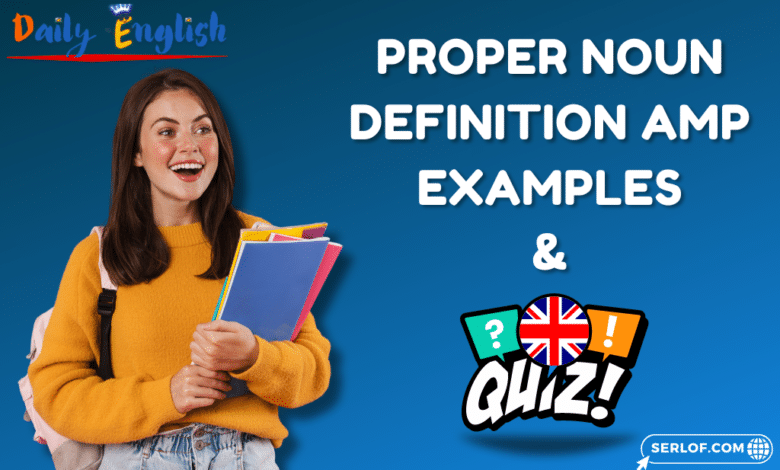proper noun definition & examples

proper noun definition & examples
Test in a lesson proper noun
Conclusion
In conclusion, proper nouns play a crucial role in the English language. They allow for the precise identification of specific individuals, places, organizations, and more. Distinguishing proper nouns from common nouns enhances clarity and adds specificity tocommunication.
As integral components of sentence structure, proper nouns start with capital letters, signifying their importance and uniqueness. Recognizing and correctly utilizing proper nouns fosters better writing skills and enables more effective and coherent expression in professional and everyday contexts.
By mastering the use of proper nouns, individuals can significantly elevate their written communication, ensuring that each proper noun is aptly acknowledged and appropriately capitalized.
This mastery is indispensable for writers, professionals, and students alike, aiming for accuracy and professionalism in their writing endeavors.
Follow us on Facebook : HERE
Follow us on Telegram : HERE
More articles about learning English grammar
- Understanding common nouns, their rules, and examples
- proper noun definition & examples
- Definition, Types, and Examples of Adverbial Clauses
- Definition, Types, and Examples of Adverbial Material Noun
- Definition, Types, and Examples of Abstract Noun
- Definition, Types, and Examples of Collective Nouns
- Definition, Types, and Examples of Compound Nouns
- Definition, Types, and Examples of Singular Noun
- Definition, Types, and Examples of Plural Noun
- Definition, Types, and Examples of Personal Pronouns
- Definition, Types, and Examples of Indefinite Pronouns
- Definition, Types, and Examples of Interrogative Pronouns
- Predicate: Definition, Types & Examples
- “Understanding the Uses of the Preposition “In
- Definition, Types, and Examples of Imperative Sentences
- Definition, Types, and Examples of Exclamatory Sentences
Table of Contents








Understanding the usage of proper nounce is crucial in spoken English language,it cannot be over emphasised,it point to the directions to go when we are speaking generally at any occasion or delivering a speach, like order components of English language grammar,one needs to learn well.